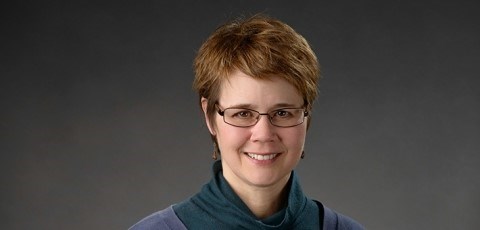Introduction to University Outreach and Engagement and Dr. Laurie Van Egeren

By Laurie Van Egeren
If you’re reading this, you’re already familiar with the MSU Center for Community and Economic Development, or MSU CCED. However, you may not know how MSU CCED is situated within the enormous and sometimes unwieldy institution that is Michigan State University. As the Interim Associate Provost for University Outreach and Engagement, I’d like to introduce you to how the work of MSU CCED and its many partners fits in the overall mission of Michigan State University.
What Is MSU’s Responsibility to the Public?
MSU is a land-grant university. In fact, MSU was the model for land-grant universities, legislated into each state through the Morrill Act of 1862. Land-grants have an explicit mission to move the knowledge generated by the university into the broader public, creating an educated, informed citizenry and solving practical problems in the economy, agriculture, education, health, industry, and the environment—the full range of issues faced by Michigan and beyond. MSU Extension, one of CCED’s partners, is housed in the College of Agriculture and Natural Resources and is one arm of the university that translates the research of the university into programs and resources that staff can take into every county in the state.
How Do Communities and MSU Work Together?
Beyond the critical direct community work that Extension does, MSU is committed to ensuring that community engagement is embedded in the academic mission of its faculty, staff, and students. Historically, and still in many places, higher education institutions talk about academic work as encompassing three areas: research, teaching, and service, with service defined primarily as sitting on university committees. They might add a fourth category: outreach. But this is not how MSU views its commitment to the public good.
MSU Has Three Strategies
- Make engagement part of the academic mission: engaged scholarship.
MSU considers outreach and engagement to be embedded within the core academic mission of the university. Faculty, staff, and students do engaged research, engaged teaching, and engaged service. This work is scholarly and exemplifies the nature of a top research university like MSU, but it is also tied to community partnerships to make it more meaningful and relevant.
- Engaged research might look like studies testing community-based interventions, program evaluations, action research to address social problems, and creative works developed with community members—work that builds on a base of research and generates new useful knowledge.
- Engaged teaching builds the capacity of any area of community from hands-on activities with preschoolers to curriculum development and implementation with K-12 students to engaged education with seniors, prisoners, businesses, natural resource groups, government, etc.
- Engaged service uses academic expertise to assist communities and businesses through technical assistance, advisory groups, and expert testimony.
- Create university-community partnerships founded in true two-way engagement.
Academic institutions have a history of conducting “drive-by” research—that is, using communities to get research participants or information related to questions identified by the researcher, and then not providing benefits in return. MSU does not support that model. MSU aspires to have not only short-term outreach, where the university sends information or services out to the community, but true engagement. Engaged research, teaching, and service are driven by community-identified questions and needs. Engaged partnerships are reciprocal, bring benefits to all partners, build on the community’s assets, and require co-development and the ability to be sustained. University-community engagement has the potential to create transformational change that makes a difference in large-scale problems.
- Have an Office of University Outreach and Engagement that supports engaged scholarship through meaningful university-community collaboration.
MSU’s Office of University Outreach and Engagement (UOE) is one of the largest in the country. It demonstrates the commitment MSU has to supporting faculty, staff, and students in collaborating with communities for long-term, meaningful impacts. UOE is part of the academic structure of the university that includes the 17 colleges through which faculty, staff, and students conduct their research, teaching, and service activities, such as the College of Social Sciences, the College of Natural Sciences, and the College of Education. Along with other offices designed to support the academic mission, such as undergraduate education and graduate education, UOE’s work cuts across all the colleges to build capacity for engaged scholarship. For example, UOE:
- Works with researchers to think about how their work can be collaborative with communities
- Explores what community partners need through university partnerships
- Identifies potential partners across the university and in the broader community
- Conducts professional development programs with faculty, staff, and students about how to initiate partnerships, identify community assets and needs, work toward mutual benefits, and disseminate the work to both academic peers and to the larger community
- Helps the university think about how to recognize and reward community-engaged scholarship
- Highlights effective partnerships through communications and awards
UOE has several units that target different objectives or communities, including the Julian Samora Research Institute; Gifted and Talented Programs; the Wharton Center’s MSU-FCU Institute for Arts and Creativity; Usability/Accessibility Research and Consulting; and, to address engaged scholarship within the context of community and economic development, CCED. This rich set of units and creative people working together to build university-community partnerships meet regularly and collaborate continuously. So as you work with CCED on local initiatives, REI opportunities, projects in Flint, or domicology, know that CCED is an essential part of a network and structure committed to partnering the academic strengths of the university with the on-the-ground local knowledge of communities to propel impact for all.
Laurie Van Egeren
Interim Associate Provost for University Outreach and Engagement

